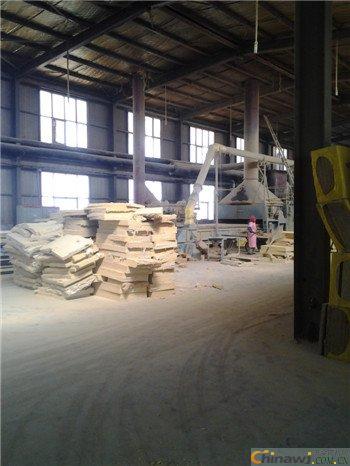1. **Appearance Quality**: The surface of the rock wool board should be smooth and even, with no visible scratches, stains, or imperfections that could affect its functionality or aesthetic appeal. A high-quality finish ensures it is suitable for both interior and exterior applications without compromising performance.
2. **Combustion Performance**: Combustion performance refers to how building materials react when exposed to fire, including their ignitability, flame spread, heat release, smoke production, charring, weight loss, and toxicity. Rock wool boards are classified as non-combustible due to their zero combustion rating. This makes them an excellent choice for fire safety in construction projects where fire resistance is critical.
3. **Heat Load Shrinkage Temperature**: This property measures the thermal stability of the rock wool board under heat. When a wet sample is gradually heated, it begins to shrink at 643°C. This means that once the external temperature reaches this threshold, the material may start to deform. This characteristic is crucial for assessing the board’s durability in high-temperature environments.
4. **Hygroscopicity**: Hygroscopicity refers to a material's ability to absorb moisture from the air. For rock wool boards, this property is influenced by its chemical composition and microstructure. If the material has porous structures, it tends to absorb more moisture. However, the hygroscopicity of the rock wool board is relatively low—only 3.9% per square meter. This helps maintain dry conditions indoors and prevents mold or dampness issues.
5. **Organic Matter Content**: Organic matter primarily consists of carbon, hydrogen, and oxygen. It is essential for life and can be found in substances like fats, proteins, sugars, and enzymes. The presence of organic compounds in a material often correlates with its flammability. In the case of rock wool boards, the organic content is only 2.9%, mainly composed of "cotton" and processed asbestos. These components are not easily combustible, contributing to the board’s overall fire resistance.
6. **Density**: The density of rock wool boards plays a key role in determining their strength and insulation properties. The standard density range for quality rock wool boards is between 100–250 kg/m³, with a tolerance of ±15%. This density ensures the board meets all necessary quality standards while maintaining good thermal and acoustic performance.
7. **Additional Considerations**: When selecting rock wool insulation boards, it’s important to consider factors such as dimensional stability, environmental impact, and long-term performance. Choosing a reputable supplier ensures you get consistent quality and reliable products that meet industry standards. Whether for residential or commercial use, rock wool boards offer a safe, durable, and efficient insulation solution.

Solar power is the ultimate renewable energy source whether you're an eco-minded consumer or practical individualist. The sun's light is sustainable energy that provides a resource that is renewable and has a very low carbon footprint. Solarhome is a premier provider of reliable, durable, proven photovoltaic systems from leading manufacturers, allowing you to harness this free energy alternative. Our grid-tie and battery backup options mean those cloudy days and long nights won't leave you without electricity.
Off-Grid PV System,Off Grid Solar,Solar Photovoltaic System
Yangzhou Beyond Solar Energy Co.,Ltd. , https://www.ckbsolar.com